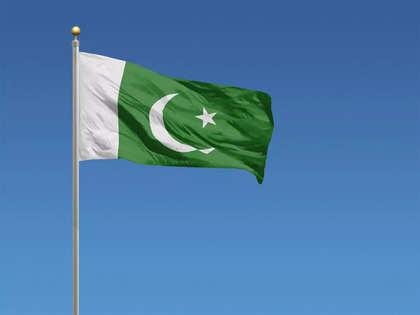In a significant development, Pakistan has announced that the International Monetary Fund (IMF) has given its nod to a hefty $7 billion loan. This financial injection from the IMF is set to provide much-needed relief to the country’s struggling economy. Let’s delve deeper into this crucial development and its potential impact on Pakistan’s economic landscape.
Pakistan secures $7 billion loan from IMF
Pakistan has successfully secured a $7 billion loan from the International Monetary Fund (IMF), providing a much-needed financial boost to the country’s struggling economy. The approval of this loan comes as welcome news for Pakistan, as it grapples with economic challenges exacerbated by the global pandemic.
The IMF loan will help Pakistan address its balance of payments crisis, stabilize its currency, and boost its foreign exchange reserves. This financial support will also aid in implementing structural reforms to improve Pakistan’s economic outlook and create a more sustainable path for growth and development.
Implications of the IMF loan on Pakistans economy
Impact on Fiscal Policy:
- The IMF loan will require Pakistan to implement strict fiscal policies to ensure repayment of the loan.
- This could lead to austerity measures such as cuts in government spending, which may negatively affect public services and welfare programs.
- There may also be an increase in taxes to generate additional revenue for debt repayment.
Effect on Exchange Rate:
- The IMF loan approval may stabilize the Pakistani rupee in the short term as investors gain confidence in the economy.
- However, in the long run, the increased debt burden may put pressure on the exchange rate, leading to depreciation of the currency.
Challenges and opportunities ahead for Pakistan
Pakistan has announced that the IMF has approved a $7 billion loan, signaling both challenges and opportunities ahead for the country. This financial assistance comes at a critical time when Pakistan is facing economic difficulties and needs to implement structural reforms to stabilize its economy. The loan provides a lifeline for the country to address its financial woes and pave the way for sustainable growth.
However, the IMF loan also poses challenges for Pakistan as it comes with strict conditions and reforms that the country must adhere to. This includes measures such as fiscal consolidation, revenue enhancement, and structural adjustments, which may be difficult to implement and could lead to social unrest. Despite the challenges, this loan presents an opportunity for Pakistan to make necessary changes and reforms to set the country on a path towards economic stability and prosperity.
Recommendations for effectively utilizing the IMF loan
When it comes to effectively utilizing the IMF loan, there are several key recommendations that Pakistan should consider:
- Implement structural reforms: Focus on implementing structural reforms in key sectors such as energy, taxation, and governance to address the underlying issues leading to the need for the loan.
- Enhance transparency and accountability: Ensure that funds from the loan are allocated and used efficiently, with transparent monitoring mechanisms in place to prevent misuse and corruption.
Additionally, Pakistan should prioritize investing in infrastructure projects that will boost economic growth and create employment opportunities. It is also crucial to address social welfare programs to support vulnerable populations during the economic recovery process.
In Conclusion
As Pakistan secures a much-needed financial lifeline from the IMF in the form of a $7 billion loan, the economic landscape of the country is poised for potential transformation. With challenges ahead and opportunities on the horizon, only time will tell how this injection of funds will shape the future of Pakistan’s economy. Stay tuned for more updates on this developing story.

